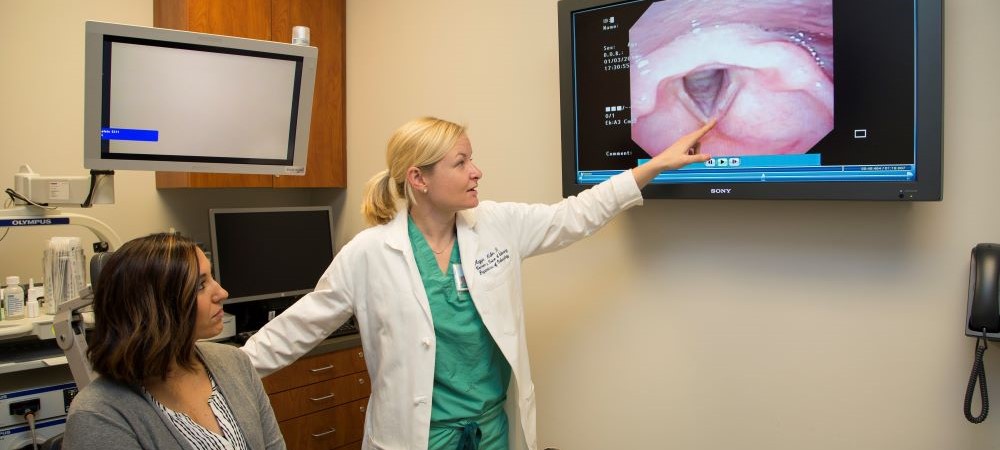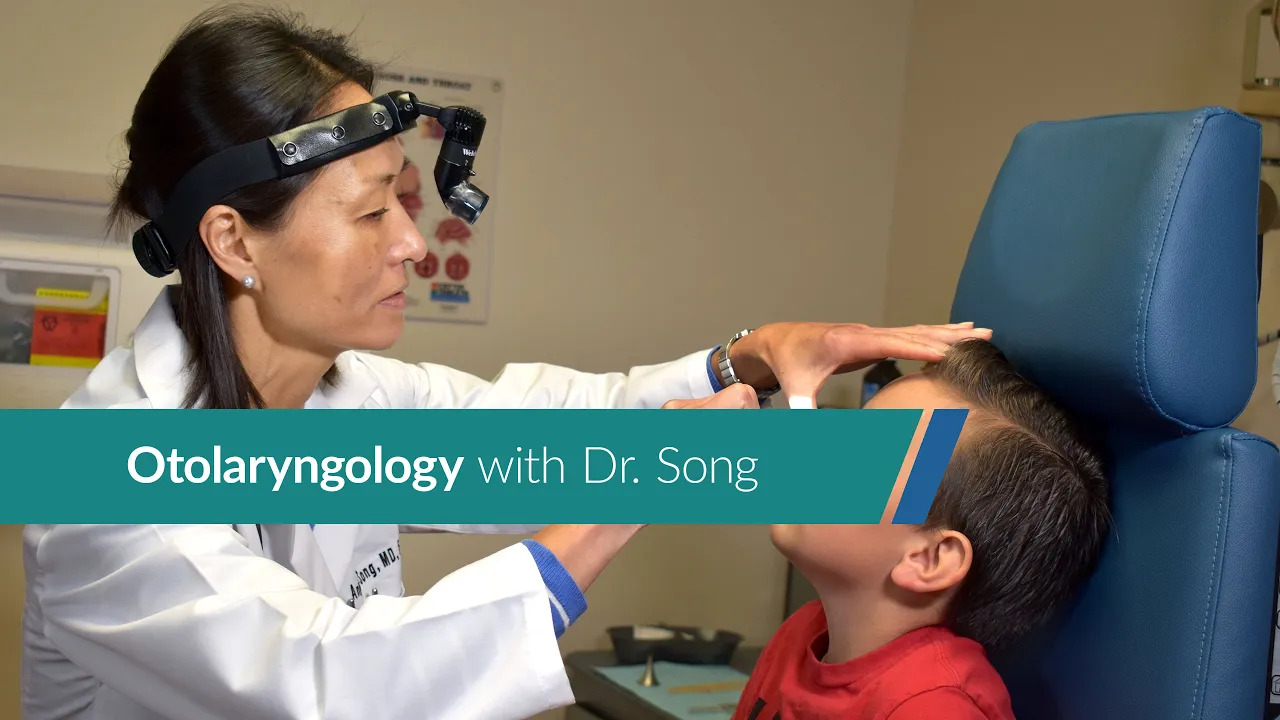Checking out the Area of Otolaryngology: What to Anticipate When You Seek Advice From an ENT
Otolaryngology, commonly referred to as ENT, incorporates the medical diagnosis and therapy of nose, ear, and throat problems. For those experiencing related concerns, speaking with an ENT expert can supply clearness and relief. Comprehending what to anticipate during such appointments is vital for efficient communication and care. This overview will describe essential elements of the ENT experience, including typical factors for gos to and the processes entailed in diagnosis and therapy.

Understanding Otolaryngology: A Summary
Otolaryngology, commonly referred to as ENT (Nose, throat, and ear) medicine, is a specialized branch of medicine that concentrates on the medical diagnosis and treatment of problems affecting these important locations of the human body. This field incorporates a vast array of disorders, consisting of those pertaining to hearing, equilibrium, respiratory system feature, and speech. Otolaryngologists are trained to manage both medical and clinical therapies, using innovative strategies and technologies. Their know-how expands past standard disorders, addressing problems such as allergic reactions, sinus infections, and hearing loss. Furthermore, they play a crucial function in the administration of head and neck cancers, offering comprehensive care tailored to private patient needs. On the whole, otolaryngology remains necessary for keeping health and lifestyle in affected people.
Common Factors to See an ENT Specialist
Lots of individuals seek the know-how of an ENT professional for a range of reasons, showing the varied nature of problems that affect the ear, nose, and throat. Usual issues include chronic sinusitis, which usually results in persistent nasal blockage and facial discomfort. Allergies and their associated symptoms, such as sneezing and itching, also prompt brows through to these experts (Otolaryngologist). Hearing loss, whether abrupt or steady, is an additional substantial reason for assessment. Furthermore, people may seek analysis for throat disorders, consisting of relentless hoarseness or ingesting difficulties. Sleep apnea, characterized by disturbed breathing during rest, is frequently dealt with by ENT experts as well. Each of these problems highlights the value of specialized treatment in taking care of intricate ENT-related health problems
Preparing for Your ENT Visit
When planning for an ENT appointment, it is vital to gather appropriate information and take into consideration any details problems. People must compile a detailed clinical history, consisting of previous ear, nose, or throat problems, surgical treatments, and present medicines. Documenting signs and symptoms-- such as frequency, duration, and extent-- can give important insights for the ENT professional. Additionally, individuals ought to prepare a list of inquiries they wish to ask, guaranteeing that all issues are resolved during the visit. Bringing along any kind of appropriate clinical documents or test results can even more help the ENT in understanding the person's problem. Lastly, patients must confirm their appointment information, including day, place, and time, to minimize any last-minute complication. Appropriate preparation can boost the performance of the appointment and result in much better end results.
What to Expect Throughout the Appointment
As the consultation begins, the individual can expect to take part in a comprehensive conversation with the ENT expert concerning their signs and case history. The professional will make inquiries about the period, frequency, and severity of signs such as hearing loss, nasal blockage, or aching throat. In addition, the client's previous medical problems, drugs, and any pertinent household history will certainly be evaluated, aiding the professional in forming a full understanding of the client's health and wellness. The ENT may likewise ask concerning lifestyle aspects, such as direct exposure to toxic irritants or allergens. This open discussion establishes a structure for the assessment, ensuring that the person's worries are resolved and setting the phase for any kind of necessary analyses or suggestions for treatment.
Diagnostic Examinations and Treatments in Otolaryngology
A range of analysis examinations and treatments are essential in otolaryngology to accurately review and detect conditions influencing the ear, throat, and nose. Usual examinations consist of audiometry, which gauges hearing function, and tympanometry, examining center ear pressure. Nasal endoscopy allows visualization of the nasal passages and sinuses, while laryngoscopy examines the throat and vocal cables. Imaging methods, such as CT scans and MRIs, supply in-depth sights of head and neck frameworks. Allergy screening might additionally be carried out to clearup determine triggers for sinus or breathing concerns. These analysis devices allow ENT professionals to create a thorough understanding of patients' conditions, ensuring tailored and efficient administration plans. Proper medical diagnosis is essential for effective treatment outcomes in otolaryngology.
Treatment Alternatives Supplied by ENT Specialists
ENT specialists use a selection of therapy choices customized to deal with particular conditions impacting the throat, ear, and nose. These therapies vary from traditional strategies, such as medicine and lifestyle modifications, to more intrusive treatments. Allergic reactions may be handled with antihistamines or immunotherapy, while chronic sinus problems may call for nasal corticosteroids or sinus surgical procedure. For hearing loss, ENT experts usually advise listening device or surgical treatments like cochlear implants. In cases of throat disorders, options can include speech treatment or surgical treatments to eliminate obstructions. In addition, they may offer guidance for managing sleep apnea, consisting of the use of CPAP tools or medical treatments. Overall, the goal is to enhance individuals' top quality of life via individualized care and reliable treatment approaches.
When to Seek Follow-Up Treatment With an ENT
When to seek follow-up care with an ENT specialist is important for handling ongoing signs or problems related to nose, ear, and throat conditions, acknowledging. People ought to consider scheduling a follow-up appointment if signs and symptoms constant nasal drip continue regardless of preliminary treatment, such as chronic ear pain, nasal congestion, or throat pain. Adjustments in hearing, equilibrium issues, or unusual nasal discharge may likewise necessitate additional examination. Additionally, if a patient experiences side effects from recommended drugs or has actually undertaken a medical treatment, follow-up treatment is crucial to keep track of healing and attend to any kind of worries. Prompt consultations can guarantee effective management of problems, stop potential problems, and provide tranquility of mind relating to one's wellness. Seeking follow-up treatment promotes aggressive health monitoring in otolaryngology.
Often Asked Concerns

What Certifications Should I Seek in an ENT Expert?
When seeking an ENT specialist, link one must try to find board qualification, relevant experience, and strong client testimonials. Additionally, reliable interaction abilities and a caring method can substantially enhance the general treatment experience.
How Do I Choose the Right ENT for My Demands?
Picking the right ENT specialist involves examining their qualifications, experience, and individual testimonials (ENT Clinic). It is necessary to contemplate their communication style and approach to treatment, guaranteeing they align with the person's certain wellness requirements and preferences
Exist Any Kind Of Threats Associated With ENT Procedures?
The risks connected with ENT treatments may consist of infection, blood loss, anesthetic complications, and potential damage to surrounding structures. Individuals must talk about these dangers with their medical professional to comprehend individual worries and assurance notified decisions.
How Can I Take Care Of Stress And Anxiety Before My ENT Visit?
To handle anxiety before a visit, individuals can practice deep breathing workouts, imagine positive outcomes, prepare questions beforehand, and look for assistance from buddies or family members, fostering a sense of peace of mind and peace.
What Should I Do if I Experience Side Impacts From Treatment?
If side impacts from treatment take place, the individual should promptly report them to their doctor. Modifications to treatment or added interventions may be needed to guarantee safety and security and effectiveness in handling their condition - Voice. As the assessment starts, the client can anticipate to involve in an extensive discussion with the ENT specialist regarding their signs and symptoms and medical history. These diagnostic devices enable ENT specialists to create a detailed understanding of patients' conditions, making sure customized and efficient monitoring strategies. ENT professionals provide a range of treatment choices tailored to address certain problems impacting the ear, nose, and throat. When seeking an ENT professional, one need to look for board qualification, relevant experience, and solid patient evaluations. Selecting the best ENT professional entails examining their qualifications, experience, and person reviews